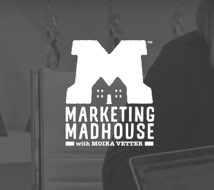There used to be a time when, for ambitious entrepreneurs, the IPO was the end goal. Grow like crazy, then go public. It wasn’t just an acronym, it was a status symbol, three little letters (IPO) that told the world you’d arrived. But what some of these entrepreneurs didn’t know (Mark Zuckerberg, Andrew Mason, I’m looking at you), is what leaves when you arrive at the IPO. Because what you lose are the elements that make an entrepreneur an entrepreneur: Innovation. Authority. Clarity. Risk taking.
What do you gain as an IPO? Obviously capital…which is the reason many grow this way…but what else do you gain? Shareholders. A peanut gallery of parties who may or may not have the innovation or know-how to make your particular enterprise work. Just ask Andrew Mason, who founded Groupon—only to be fired for poor performance (and sinking shares), including Q4 earnings that “missed analysts’ expectations.” That article goes on to say Groupon must “come up with new strategies” to succeed. That’s something Mason might have achieved if he’d retained the decision-making authority to experiment with other business models for success.
Perhaps that’s why a trend toward privatization is cropping up everywhere. In February, Heinz went private. Last week, BusinessWeek ran a piece about Dell looking to do the same. No thanks to stock that’s down 48% and investors who are “frustrated” with the company’s direction, founder Michael Dell is in talks to buy the company back from investors in what will be the biggest leveraged buyout since 2007.
Even while watching TV, I happened upon a commercial for Nationwide in which the voice-over cheerfully rattled off a long list of benefits that they can offer in part “because we have no shareholders.”
So what advantages do you get when you “go private”? Here are a few:
- Agility. When you go private, you can pull free market principles back into your business. When you aren’t tied by financial restraints or rounds of shareholder approvals, you have the agility to react to market conditions—like Dell who needs a radical change to its business model, but was hampered by change-resistant investors. Or consider Heinz whose CEO said being freed from the obligations of a public company would allow Heinz to be more nimble and competitive.
- Decision-making authority. Not having to make decisions by committee has benefits in good and bad economic times. In good times, you have the authority to strike while opportunity is hot. In bad times, you can continue to do things you deem are good for your company that might not go down so well with shareholders (i.e., continuing to fund charitable organizations despite tight budget conditions).
- Focus. The sheer amount of time and resources spent preparing for quarterly earnings calls or achieving SEC compliance—instead of growing the business—is well documented. Now, more investors are requesting yet more face time with CEOs. As the BusinessWeek article says, “It’s unlikely the requests will let up any time soon, as new research suggests that those with direct access to a company’s C-suite tend to make better decisions timing stock purchases.” That’s great for those purchasing stock, but as an entrepreneur, whose priorities do you want to serve?
- Innovation. When you don’t have to appease investors, you can continue to follow your gut and explore any solutions for success you wish. Last May, Zuckerberg forked over what would ultimately cost $715 million on the “impulse buy” of Instagram—weeks before the Facebook IPO. Today, while Facebook is struggling, Instagram is thriving—especially among teen users who are abandoning Facebook. Which makes his buy a smart move, and one that might never have happened with a herd of shareholders weighing in on his decision.
This is not to say that all IPOs are dead-ends for the entrepreneur. It’s more about looking at the advantages of staying private. The autonomy of being private is exactly why many entrepreneurs agree with Charles Koch, Chairman and CEO of Koch Industries, the world’s largest private company who said he would be offering public shares “literally over my dead body.”
Can’t argue with that.




